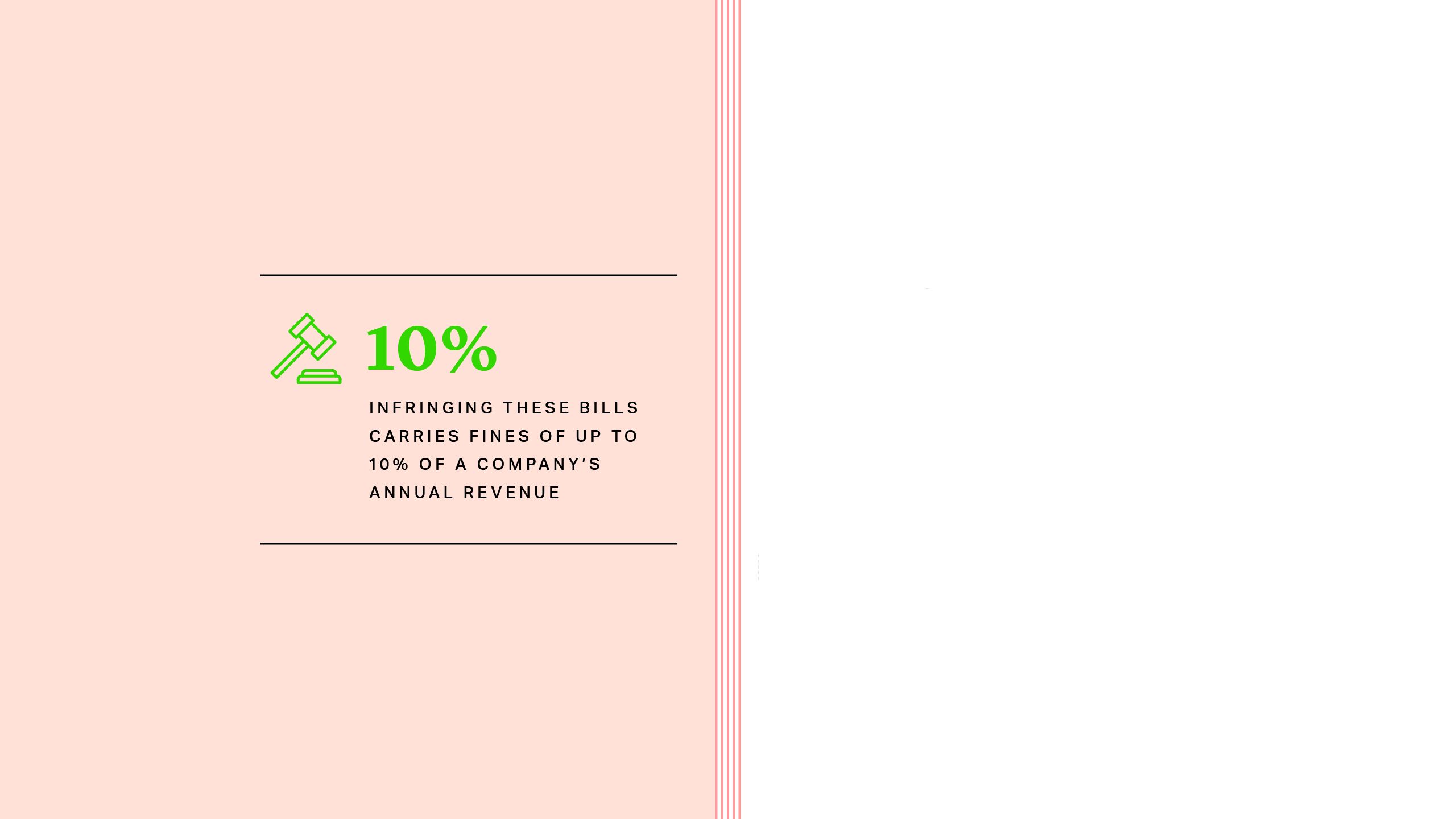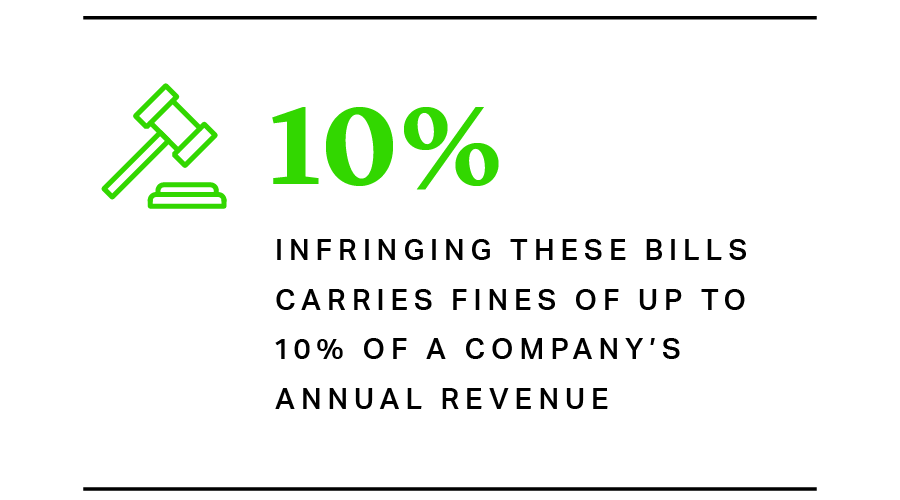
Over the last year, several pieces of tech-focused antitrust legislation have been introduced in the U.S. These proposals have varied in scope and function. One bill, the “ACCESS Act,” sought to mandate that large tech companies increase interoperability and portability on their platforms. Another, the Ending Platform Monopolies Act, actually sought to break up those companies. Out of all of the proposed federal legislation, only two bills appear to have meaningful potential to become law at this stage: the American Innovation and Choice Online Act (“the AICOA”) and the Open App Markets Act (“the OAMA”).
There is a concerted push by the bills’ sponsors to get these proposals to a vote in the fall. If passed, both bills could have significant effects.

Importing a Ban on “Self-Preferencing” to the U.S.
“Self-preferencing” refers to a platform operator or merchant disadvantaging rivals on its platform to the benefit of its own offerings. This concept has featured in recent cases we’ve worked on in Europe and elsewhere. It is less prevalent in the U.S. where companies do not have corresponding obligations to give competitors the same treatment they give themselves.
For large online platforms, that long-established basic principle of U.S. antitrust law could change under the AICOA and OAMA. The AICOA generally prohibits covered platforms from preferencing their own products and services relative to business users on the platform. It also includes provisions prohibiting specific types of self-preferencing such as discriminatory ranking. The OAMA does not contain a general prohibition on self-preferencing but prohibits several types of specific conduct that could be described as self-preferencing, including discriminatory ranking, sticky defaults, and requirements to use first-party in-app payment systems.

Importing a Ban on “Self-Preferencing” to the U.S.
“Self-preferencing” refers to a platform operator or merchant disadvantaging rivals on its platform to the benefit of its own offerings. This concept has featured in recent cases we’ve worked on in Europe and elsewhere. It is less prevalent in the U.S. where companies do not have corresponding obligations to give competitors the same treatment they give themselves.
For large online platforms, that long-established basic principle of U.S. antitrust law could change under the AICOA and OAMA. The AICOA generally prohibits covered platforms from preferencing their own products and services relative to business users on the platform. It also includes provisions prohibiting specific types of self-preferencing such as discriminatory ranking. The OAMA does not contain a general prohibition on self-preferencing but prohibits several types of specific conduct that could be described as self-preferencing, including discriminatory ranking, sticky defaults, and requirements to use first-party in-app payment systems.
These Laws Would Introduce a Host of Further Restrictions and Obligations
In addition to the rules on self-preferencing, the AICOA and OAMA might also:
These rules mirror several of the DMA’s requirements, indicating a degree of alignment across jurisdictions and suggesting the possibility of a global framework, at least for some key issues.
Compliance Complexity
Due to broad language within these bills, fully evaluating their repercussions will take time, but it is already obvious the laws are liable to have a significant impact. For companies in scope of the laws, compliance will be a significant undertaking. As with the DMA and potential UK regulation, getting this wrong will be expensive. If enacted in their current form, these laws would carry fines of up to 10% of a company’s annual revenue.
The laws would likely also affect companies beyond the large technology firms. Although such firms are unlikely to be required to make changes to comply with the laws, the laws may create new risks and opportunities for them to integrate or partner with the businesses in scope of the OAMA and AICOA.

Compliance Complexity
Due to broad language within these bills, fully evaluating their repercussions will take time, but it is already obvious the laws are liable to have a significant impact. For companies in scope of the laws, compliance will be a significant undertaking. As with the DMA and potential UK regulation, getting this wrong will be expensive. If enacted in their current form, these laws would carry fines of up to 10% of a company’s annual revenue.

The laws would likely also affect companies beyond the large technology firms. Although such firms are unlikely to be required to make changes to comply with the laws, the laws may create new risks and opportunities for them to integrate or partner with the businesses in scope of the OAMA and AICOA.
D. Bruce Hoffman
Washington, D.C.
T: +1 202 974 1784
bhoffman@cgsh.com
V-Card
Leah Brannon
Washington, D.C.
T: +1 202 974 1508
lbrannon@cgsh.com
V-Card
Michael Goldenberg
Washington, D.C.
T: +1 202 974 1642
mgoldenberg@cgsh.com
V-Card




